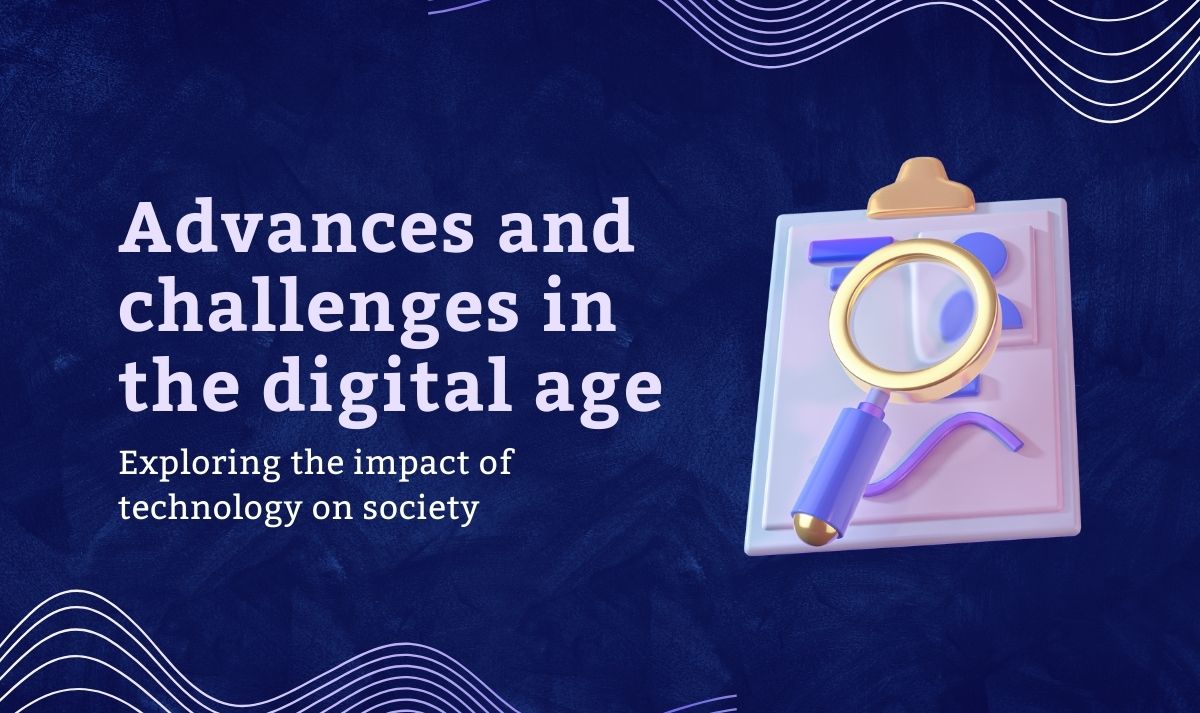
In the contemporary era, the rapid proliferation of digital technologies has revolutionized nearly every aspect of human life. From communication to commerce, education to entertainment, the digital age has brought about significant advancements that have reshaped societal structures and norms. However, alongside these advancements, there are also challenges that arise, ranging from ethical dilemmas to socioeconomic disparities. This essay delves into the dual nature of technological progress, examining its profound impact on society while also addressing the hurdles it presents.
Advancements in the Digital Age
The digital age has ushered in a plethora of advancements that have transformed the way we live, work, and interact. One of the most significant breakthroughs is the internet, which has democratized access to information and facilitated global connectivity. With the click of a button, individuals can communicate with others across the world, access vast repositories of knowledge, and engage in online communities that transcend geographical boundaries.
Moreover, the advent of social media platforms has revolutionized communication, enabling users to connect with friends, family, and strangers alike. Social media has not only redefined how we interact but has also become a powerful tool for activism, allowing individuals to mobilize for social and political change on a global scale.
In addition to communication, digital technology has revolutionized industries such as healthcare, education, and entertainment. Telemedicine has made healthcare more accessible and convenient, particularly for individuals in remote areas or with limited mobility. E-learning platforms have democratized education, offering flexible learning opportunities to students of all ages and backgrounds. Furthermore, streaming services have transformed the way we consume media, providing on-demand access to a vast array of content.
Challenges in the Digital Age
Despite the myriad benefits of technological advancements, the digital age also presents significant challenges that warrant attention. One of the foremost concerns is the erosion of privacy in an increasingly digitized world. With the proliferation of data collection technologies and surveillance systems, individuals are constantly under scrutiny, raising concerns about surveillance capitalism and the commodification of personal information.
Furthermore, the rise of misinformation and disinformation poses a threat to societal cohesion and democratic values. Social media algorithms, designed to maximize engagement, often prioritize sensationalist content over factual accuracy, leading to the spread of falsehoods and conspiracy theories. This phenomenon has been particularly pronounced in the realm of politics, where echo chambers and filter bubbles can reinforce ideological divides and undermine trust in democratic institutions.
Moreover, the digital divide exacerbates existing socioeconomic disparities, perpetuating inequalities in access to technology and digital literacy. While affluent individuals in urban areas may enjoy high-speed internet and state-of-the-art devices, many rural and marginalized communities lack basic connectivity and technological infrastructure. This digital divide not only limits economic opportunities but also widens the gap in access to education, healthcare, and civic participation.
Ethical considerations also loom large in the digital age, as technological advancements raise complex moral dilemmas. Issues such as algorithmic bias, autonomous weapons, and the ethical implications of artificial intelligence (AI) pose profound questions about the ethical boundaries of technological innovation. As algorithms and AI systems become increasingly autonomous, concerns about accountability, transparency, and fairness become more pressing.
Mitigating the Challenges
Addressing the challenges posed by the digital age requires a multifaceted approach that encompasses technological innovation, regulatory frameworks, and societal awareness. To safeguard privacy in the digital realm, policymakers must enact robust data protection laws and regulations that empower individuals to control their personal information. Companies must also prioritize data security and transparency in their operations, ensuring that user privacy is not compromised for the sake of profit.
Combatting misinformation and disinformation requires a concerted effort from both tech companies and users. Platforms must deploy fact-checking algorithms and moderation policies to curb the spread of false information, while users must cultivate critical thinking skills and media literacy to discern truth from fiction. Additionally, promoting digital literacy programs in schools and communities can empower individuals to navigate the digital landscape responsibly.
To bridge the digital divide, governments and organizations must invest in infrastructure development and digital inclusion initiatives that ensure equitable access to technology for all. This includes expanding broadband internet coverage to underserved areas, providing subsidies for low-income households to access affordable devices and internet services, and offering training programs to enhance digital skills.
From an ethical standpoint, technologists and policymakers must adopt a human-centered approach to technological development, prioritizing the well-being and autonomy of individuals over profit or efficiency. This entails integrating ethical considerations into the design and deployment of technology, fostering diversity and inclusivity in the tech industry, and engaging in transparent dialogue with stakeholders to address emerging ethical challenges.
Conclusion
The digital age presents both immense opportunities and formidable challenges for society. While technological advancements have revolutionized nearly every aspect of human life, they have also given rise to concerns about privacy, misinformation, inequality, and ethics. Addressing these challenges requires a concerted effort from policymakers, technologists, civil society, and individuals alike. By embracing a holistic approach that prioritizes human values and societal well-being, we can harness the transformative potential of technology while mitigating its adverse effects, ensuring that the digital age fosters progress and prosperity for all.







